CIRCLean

Malware regularly use USB sticks to infect victims and the abuse of USB sticks is a common vector of infection (as an example Lost USB keys have 66% chance of malware).
CIRCLean is a independent hardware solution to clean documents from untrusted (obtained) USB keys / USB sticks. The device converts automatically untrusted documents into a readable format and stores these clean files on a trusted (user owned) USB key/stick.
The code runs on a Raspberry Pi (a small hardware device), which also means it is not required to plug or open the original USB key on a computer. CIRCLean can be seen as kind of air gap between the untrusted USB key and your operational computer.
CIRCLean does not require any technical prerequisites of any kind and can be used by anyone. CIRCLean is free software which can be audited and analyzed by third-parties. We also invite any organizations to actively reuse CIRCLean in their own products or contribute to the project.
Usage
CIRCLean is designed to be used by everyone and the following visual shows how to use in 8 easy steps.
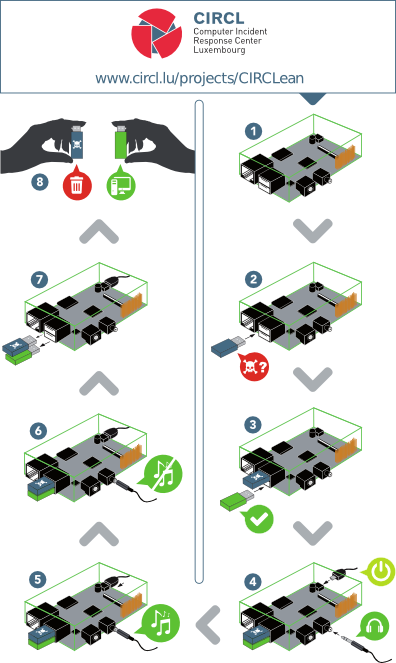
The visual usage HOWTO of CIRCLean is available in vertical PDF format and horizontal PDF format.
Step 1
Unplug the device:
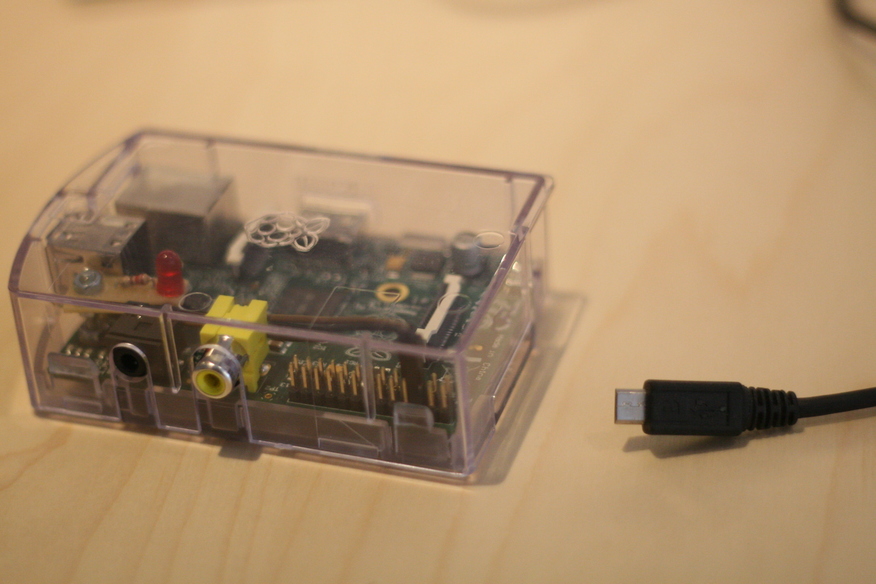
Step 2
Plug the untrusted key in the top usb slot of the Raspberry Pi:
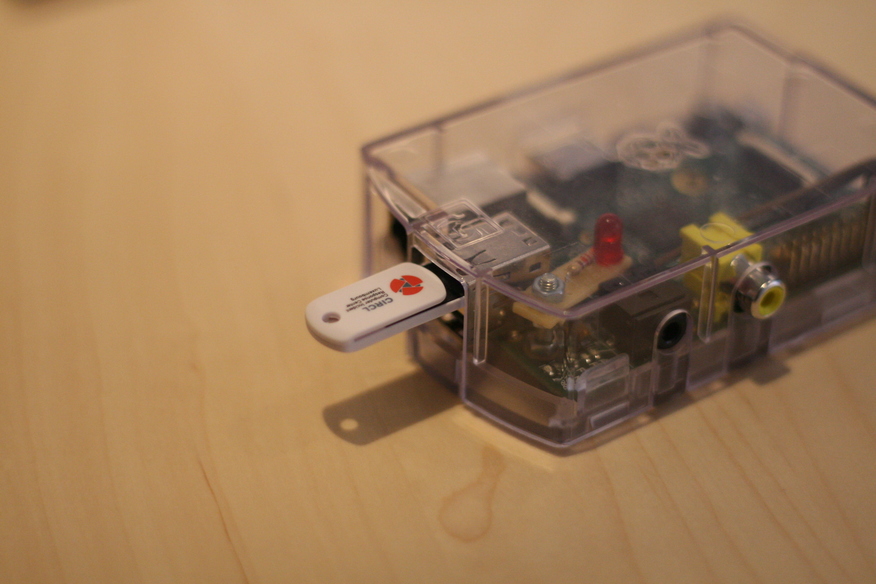
Step 3
Plug your own key in the bottom usb slot:
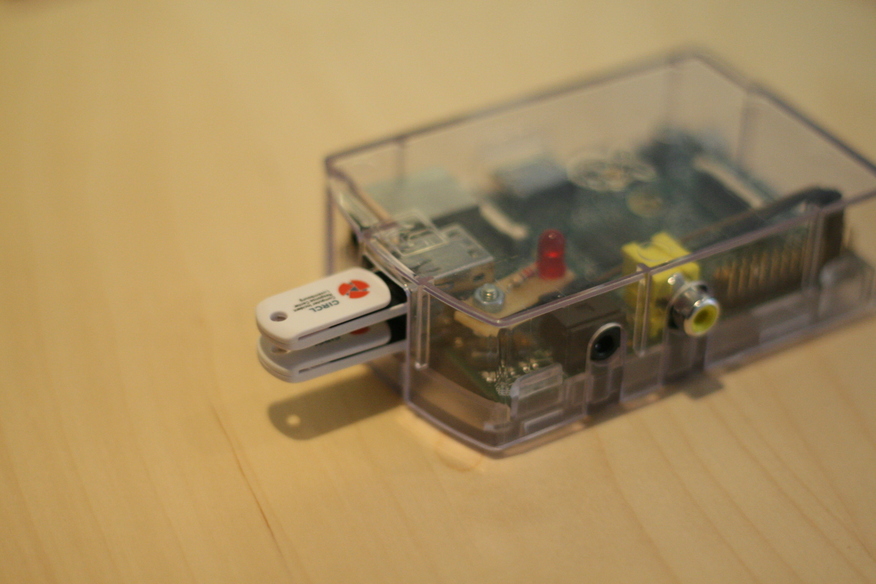
Note: Make sure your own key is bigger than the untrusted one. The extracted documents might be bigger than the original ones.
Step 4
Connect the power to the micro USB:
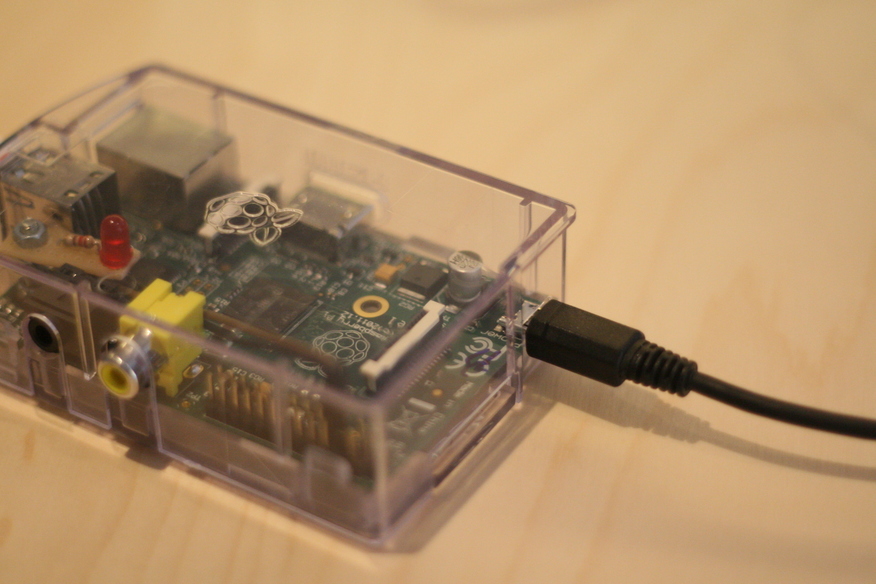
Step 5
If you have a Raspberry Pi with a diode, wait until the blinking stops:
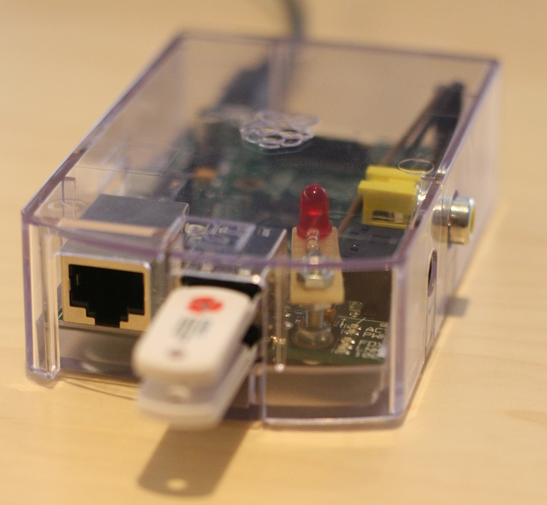
Else, plug a headset and listen to some music during the conversion. When the music stops, the conversion is finished.
Step 6
Unplug the device and remove the USB keys:
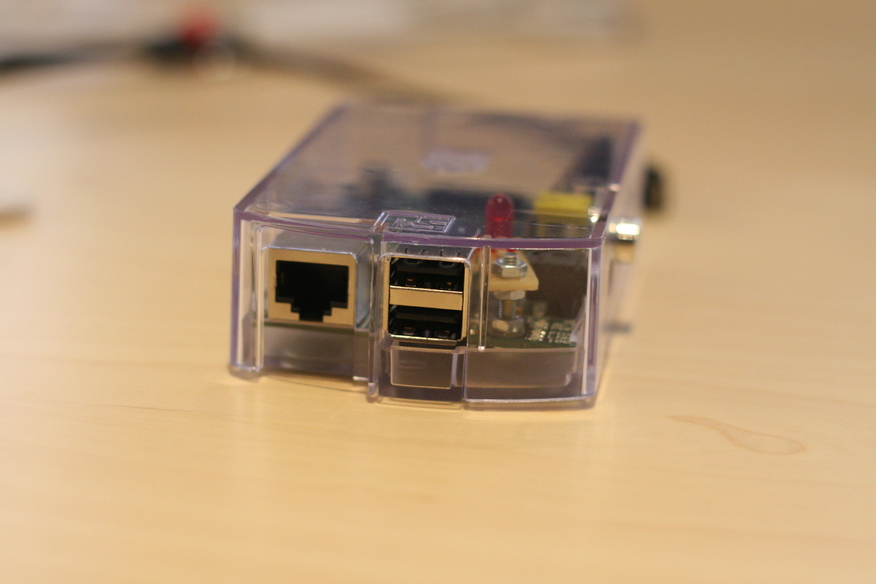
How to get your own instance
The source code with all the sources to convert the content and the scripts needed to build your own image to write on a SD card are available.
If you prefer to use a pre-build image (last update: 2016-05-12), you can use:
2016-05-12_CIRCLean.img.gz - SHA256: 1a447a5a4025a56e96fd86ef5a56f8e1301eacab4f870b7388386b910f66f015
There a new beta version of CIRCLean which is a significant improvement from the latest version in term of speed and efficiency on low-end hardware like the first version of the Raspberry Pi.
Please make sure you received the right file by checking the hash.
You can also verify the integrity of this web page by checking the PGP detached signature.
Feedback is more than welcome.
Copying the pre-build image to an SD card
While copying the pre-build image, make sure the destination disk is the SD card and not your disk.
MacOS
Find the raw disk identifying your SD card (something like diskN where N is the higher value) :
diskutil list
If the SD card is already formated and mounted, you need to unmount it (replace N with the value found):
diskutil unmountDisk /dev/diskN
Then you can copy the image to the SD card using dd:
sudo dd bs=1M if=2016-05-12_CIRCLean.img of=/dev/diskN
Linux
Find the raw disk identifying your SD card (something like /dev/sdX1 where X is character):
df -h
The disk is most probably mounted and need to be unmounted before the copy:
umount /dev/sdX1
Then you can copy the image to the SD card using dd:
dd bs=1M if=2016-05-12_CIRCLean.img of=/dev/sdX
Windows
As recommended by the RaspberryPi, Win32DiskImager utility to copy the file image to the SD card. You can also use dd for Windows.
Technical details
The sanitizing is done by converting and copying the content of the untrusted key to the trusted one. It is based on the mime type of the files, you can have more details in the README.md file of the git repository. Also, a short description of all the scripts is available in the same file.
Changelog
Version 2.0.2 - 2016-05-12
- Improve filename encoding.
Version 2.0.1 - 2016-04-26
- Re-add timidity so the MIDI files are played properly.
Version 2.0 - 2016-04-26
- No critical bugs have been identified, this release uses the latest version of Raspbian Jessie lite, with all system updates.
Version 2.0-BETA - 2015-11-06
- There a new beta version of CIRCLean which is a significant improvement from the latest version in term of speed and efficiency on low-end hardware like the first version of the Raspberry Pi. The new code base of CIRCLean is now based on PyCIRCLean.
Version 1.3 - 2015-05-27
- Fix a critical security bug related to polyglot files - thanks to the reporters (Jann Horn, seclab-solutions)
- Use the PyCIRCLean for the conversion
- Convert PDF files to PDF/A before converting to HTML
Version 1.2 - 2015-03-10
- Rollback the migration to Jessie and use Wheezy again: the only important dependency from Jessie was poppler, which is available in the backports
- Use the most recent security patches
- Do not wait for user input in case of password protected archive
Version 1.1.1 - 2014-10-26
- General upgrade of Debian to avoid the system to fail in case there is no HDMI cable connected.
Version 1.1 - 2014-10-01
- NTFS support added for USB key
- Updated to Debian Jessie including patches for bash vulnerabilities CVE-2014-6271 - CVE-2014-7169
- CIRCLean user are now removed from the sudoer
Version 1.0 - 2014-05-20
- Based on Raspbian Jessie
- Fully automated tests with Qemu
- Mimetype: support of PDF, Office documents, archives, windows executables
- Filesystem: USB keys have to be formated in vfat
- Support of multiple partitions
- Renaming of autorun.inf on the source key
- Operating system is read only
- Use pdf2htmlEX v0.11

